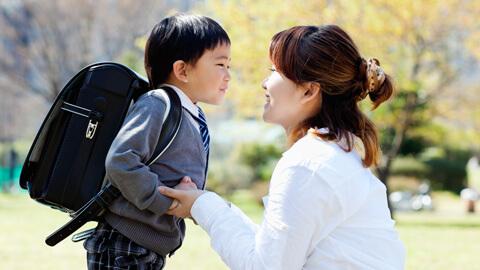Your Child’s World at 4 Years
Your preschooler is acting more like the big kids in terms of how confidently he moves and how much he knows. But he’s still a (relatively) little one at heart, one who’s comforted by the security of routines and the people and things he loves best. Remember that he still needs you to encourage him and fuel all this progress with good nutrition.
These are some of the developmental highlights of the year after he turns 4.
Cognitive
Preschoolers can vary widely in their specific abilities, but they’re all beginning to grasp abstract concepts. This new understanding can help them, for example, count to 10, understand time, and identify letters, colors, and shapes. Most children of this age have a good sense of how the everyday objects in their world work, even complicated machines (like the dishwasher) and fairly abstract ideas (like money). Your child may want to “shadow” you as you go about your day to use this knowledge.
Motor
One of the reasons a 4-year-old seems so much more advanced than he was a year ago is the improvement in his hand control and coordination. He can hold a pencil or crayon the way a grown-up does—a milestone that allows him to copy letters and numbers and attempt to draw shapes. His fine motor skills now include using a fork and spoon well, being able to dress on his own, and manage toileting cleanup. His physical skills probably now cover skipping and tumbling.
Communication
Your 4-year-old’s speech is sounding more polished. His pronunciation and grammar are much better (although he may still make some mistakes). The letters f, l, s, r, v, and z continue to challenge some 4-year-olds. His sentences are long and complex, and he strings them together to tell you interesting stories about his day.
Social
Friendship is important in the preschool years. Your child may have one or two special (“best”) friends, and these relationships are often formed at school (if your child attends preschool) and separate from you. He’s very attentive to what other children do (and what they can get away with compared to him) and wants to get along with them. Four-year-olds also try to understand deeper parts of relationships by asking about big topics like birth, death, and sexuality. It’s a sign of their maturing brain. Be prepared to answer with truthful but age-appropriate information.
Reference:
“Caring for Your Baby and Young Child, Birth to Age 5 (5th Ed)” by the American Academy of Pediatrics.

